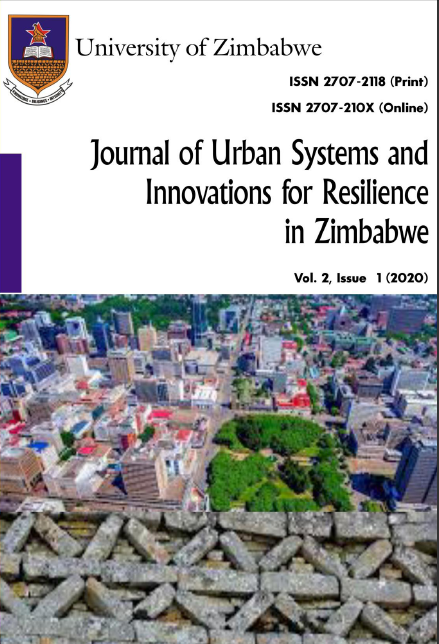The Intersectionality between Right to the City, Informality and Waste Management in Masvingo City, Zimbabwe
Keywords:
informality, inclusive cities, right to the city, waste managementAbstract
The COVID-19 pandemic has come at a time when local authorities are struggling to offer services to their residents and this spells disaster to the cities, especially those in the Global South. Most cities in the Global South have resource constraints and it affects their responses to curtail the spread of the COVID-19 disease. The situation becomes more dire in the informal sector where local authorities have been struggling to provide basic services. This article analyses waste management in the informal sector and its implication on people’s right to the city as well as the general safety and sustainability of urban areas with specific reference to Masvingo City in Zimbabwe. The article uses a mixed-methods approach, where both qualitative and quantitative methods are employed. It reveals that waste management in the informal sector is not taken seriously. Within the context of the COVID-19 pandemic, this is exposing people in this sector to an elevated risk of contracting the disease. Waste management services are not offered at the same level as done in the formal settlements and this constitutes a denial of the right to receive services from the city. This article, therefore, recommends that city authorities should incorporate informality into their service delivery system in order to improve overall safety and hygiene at large. This will guarantee people in the informal sector their right to the city and also show the inclusivity of urban policies and practices.




